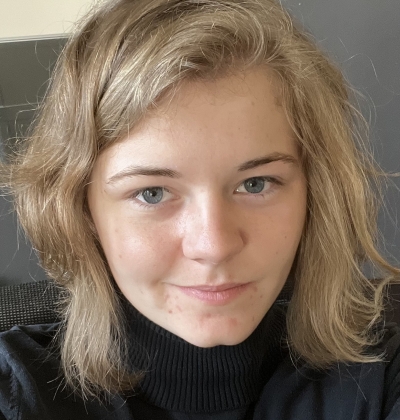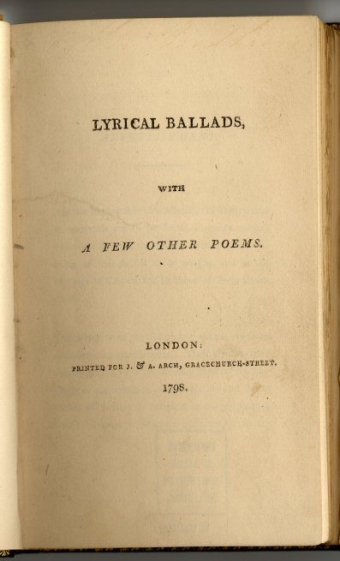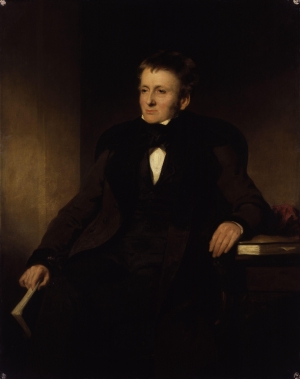
My Honors Thesis: Chapter One
Being the massive nerd that I am, I thought it might be fun to walk you all through three chapters of my honors thesis as I assemble them. "But Kennedy—what even is an honors thesis?" Good question. As I say in my info sessions, Dartmouth students get a lot of chances not only to participate in professors' research, but to also launch and run their own research or independent studies. Gavin Fry has some great blog posts about independent research and independent study courses. Seriously, go check out Gavin's blog.
Like Gavin, I took an independent study course. During my senior fall term, my thesis advisor, Professor McCann, and I worked one-on-one, meeting weekly to talk shop, review my writing, and argue about whether American football or association football is the superior sport. Being tutored by an Ivy League professor individually is a once-in-a-lifetime opportunity... unless you're at Dartmouth, in which case you may have multiple chances to get this kind of attention, as I have. My independent study prepared me to begin writing my honors thesis in the English department. Initially, my topic was quite vague—all I knew was that I wanted to write about drugs and literature and incorporate German media theory into it. The independent study was crucial in narrowing my scope and opening my eyes to the immense bulk of material already written on this topic. One book published in 2023, Psychonauts: Drugs and the Making of the Modern Mind, had already done much of what I wanted to do! But that's a good thing, not a bad thing. It means I have up-to-date, excellent scholarship on my topic, and it also means I know what scholarship doesn't exist yet. Now, I can fill in those gaps by focusing on the role of technological innovation in creating understandings of, and metaphors for, the human brain and its interactions with drugs.
Okay, that's a lot of words, so let me give you an example from my first chapter. In the 1790s, two men set out to change all of poetry. Those men were William Wordsworth and Samuel Taylor Coleridge, and they wrote a volume called Lyrical Ballads, where they claimed that poetry should not be a rarified and overwrought medium for the elite, but instead ought to use the language of everyday people to open readers' eyes and imaginations, to connect readers to the wisdom of nature, and to disconnect them from the false knowledge of know-it-all books and universities. This mission—which, by the way, was very successful—mirrors something Friedrich Kittler outlines in his book Discourse Networks: a shift from Enlightenment ideals and beliefs to Romantic ones, which Kittler claims is facilitated by changes in how children were taught to speak, read, and write. Instead of memorizing spellings of words they didn't understand, children were instead taught phonetics by their mothers with children's primers. Enjoyment, ease, and understanding became the foundation of language acquisition, resulting (Kittler claims) in some of Romanticism's foundational claims.

What does this have to do with drugs? Well, Wordsworth and Coleridge had an admirer in Thomas De Quincey, an erudite and prolific writer who became best-known for his Confessions of an English Opium-Eater. De Quincey, like many other Britons including Coleridge, began taking opium for health problems and pain. But here's how De Quincey describes his initial high:
"But I took it—and in an hour—oh, heavens! what a revulsion! what an upheaving, from its lowest depths, of inner spirit! what an apocalypse of the world within me! That my pains had vanished was now a trifle in my eyes: this negative effect was swallowed up in the immensity of those positive effects which had opened before me—in the abyss of divine enjoyment thus suddenly revealed. Here was a panacea, a pharmakon for all human woes; here was the secret of happiness, about which philosophers had disputed for so many ages, at once discovered: happiness might now be bought for a penny, and carried in the waistcoat pocket; portable ecstacies might be had corked up in a pint bottle, and peace of mind could be sent down in gallons by the mail-coach."

Before this time period, Britons underwent things like surgery without general anesthesia. The introduction of opium to the Western world was, in fact, a sort of "apocalypse" of worlds both inner and outer because it seemed to solve several massive human problems—pain, unhappiness, ennui. Of course, as De Quincey goes on to illustrate, opium is addictive. But let's focus on the contrast between Coleridge and De Quincey for now. Both men were addicted to opium, but Coleridge never wrote explicitly about his own addiction in either poetry or prose. De Quincey wrote about opium's impact on his mind, body, and life extensively. He wrote about the dreams and nightmares opium gave him; he wrote about how it changed his thought processes and his perception. De Quincey undertakes a thorough study of the relationship between his own mind and opium. The way De Quincey understands the mind and the imagination is deeply influenced by Wordsworth and Coleridge, but it is also shaped by his own reasoning on his experiences. Whereas Lyrical Ballads posits a disembodied and even divine imagination, De Quincey has an idea closer to our contemporary understanding—the imagination operates out of the brain, which can be influenced by a number of things, including drugs. If opium can create or strengthen these fantastical imageries and dreamscapes, then how independent is the mind from the physical world?
We'll continue pursuing these questions in my next blog post on my honors thesis. In the meantime, I've got a lot of reading and writing to do!

















